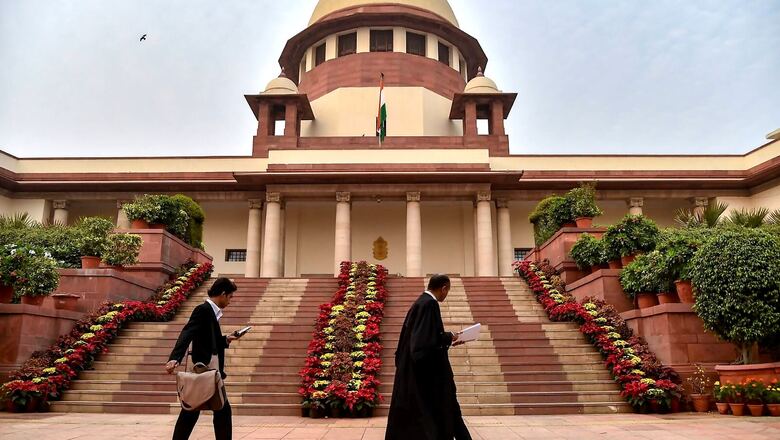
views
The much-awaited Supreme Court judgment on the hijab ban in Karnataka’s educational institutions failed to provide a clear resolution to the raging debate as the two-judge bench delivered a split verdict and referred the matter to the Chief Justice of India for constituting a larger bench.
While Justice Hemant Gupta dismissed the appeals against the March 15 verdict of the Karnataka High Court that had refused to lift the ban and held that hijab is not part of “essential religious practice” in Islamic faith, Justice Sudhanshu Dhulia allowed the pleas and observed that it is ultimately a “matter of choice”.
During the course of the judgment, Justice Gupta also framed 11 questions that will not only pave the way for adjudication of the dispute further but also highlight the various complex legal issues that revolve around the hijab debate. News18 has simplified the 11 questions into six for the sake of clarity:
SHOULD THE MATTER BE REFERRED TO A LARGER BENCH?
While the split verdict has inevitably led to the matter being referred to a larger bench, the Sabarimala judgment from the Supreme Court has left some important questions of law open. These questions are to be decided by a nine-judge bench of the top court. The questions pending from the Sabarimala case arguably have a bearing on the hijab matter. Seven questions were framed, with the key being the limits and interplay of Article 25 (Freedom of Religion) with other fundamental rights like Equality, Freedom of Expression and Right to Dignity.
IS HIJAB AN ESSENTIAL RELIGIOUS PRACTICE?
Various Supreme Court judgments have laid down certain tests to determine whether a practice is ‘essential’ to a religion. The practice is deemed ‘essential’ if it is so intrinsic to a faith that non-observance may lead to a person violating basic tenets of his or her faith. The test relies on religious doctrinal foundations and needs theological corroboration. Hence, many times, the court has to make reference to the holy Quran or the Hadis.
CAN RIGHT TO WEAR HIJAB BE CLAIMED AS PART OF FREEDOM OF EXPRESSION?
The privacy judgment given by the nine-judge bench of the Supreme Court is an emphatic assertion on individual rights — What people eat and how they dress is protected under individual liberties. The judgement throws up an interesting debate; to what extent can ‘reasonable restrictions’ be imposed on individuals by state-run institutions.
CAN PROTEST BY ONE GROUP BE REASON FOR OTHER TO CURB ITS EXPRESSION?
Simply put, can the Pandora’s Box argument be legally tenable? The argument of the state of Karnataka has been that if they allow hijab, other groups may want to wear saffron shawls. Is this obscurement of a debate or about similar rights extended to all religious groups?
DID KARNATAKA HAVE LEGITIMATE AIM WHEN IT IMPOSED RESTRICTION ON HIJAB?
This argument has been made from the petitioners’ side several times. Even if one presumes that hijab is a regressive practice, the state government must not impose such restrictions because it may lead to girls dropping out of schools, petitioners argued. The argument at the core is about a bad policy decision by the state government which disproportionately puts the burden of reform on Muslim girls who shall suffer due to existing religious and social notions.
TO WHAT EXTENT CAN STATE-RUN INSTITUTIONS INFRINGE UPON INDIVIDUAL LIBERTY?
This question has been answered in a patchy manner by various high courts on the extent to which an individual can assert his or her choice or preference over the mandated dress code. But the question has not been dealt with head-on by courts. The constitutional court is yet to settle authoritatively the question of interplay of individual freedom and institutional norms and autonomy.
Read all the Latest News India and Breaking News here




















Comments
0 comment